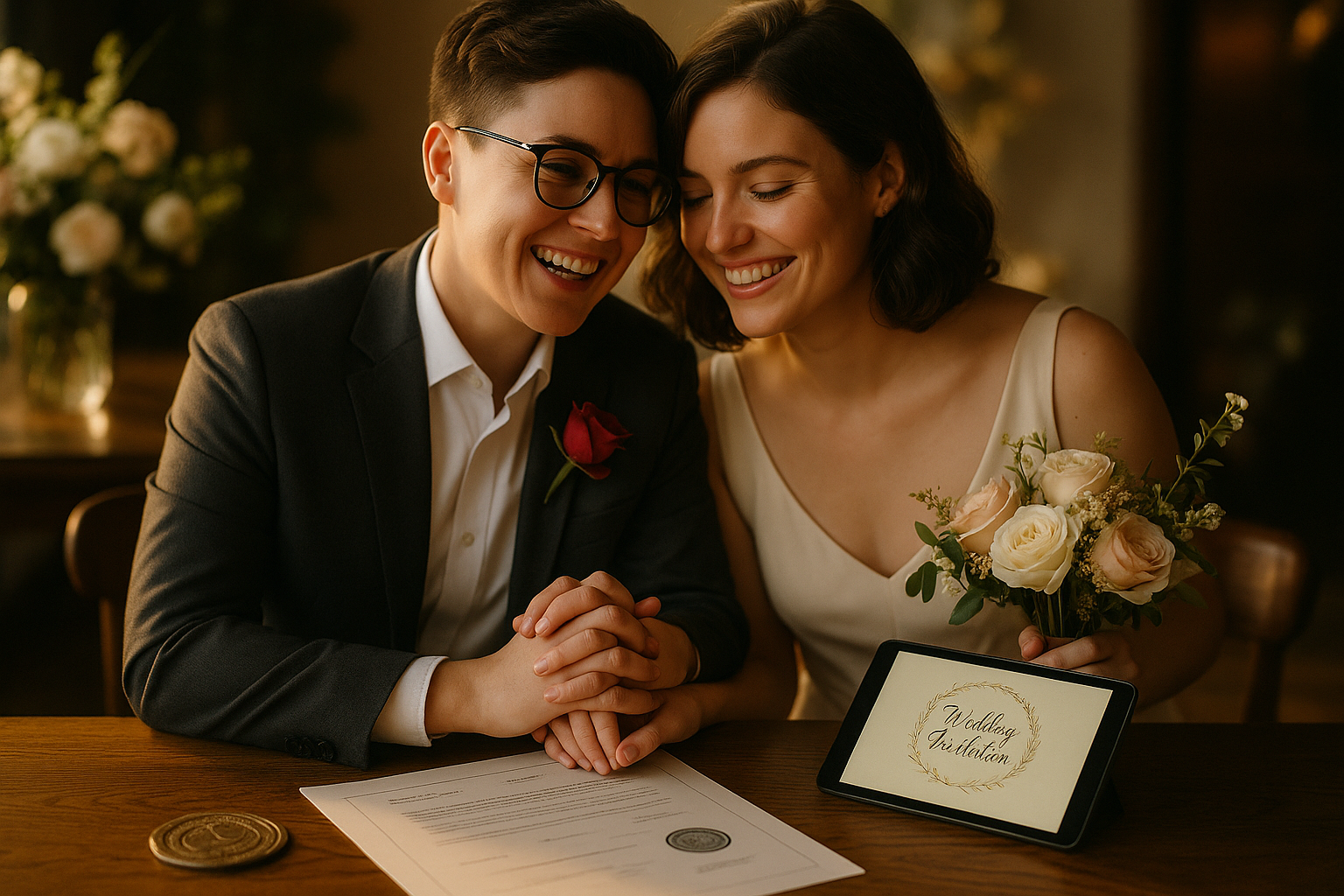Hey there! If you and your partner are considering tying the knot but want to skip the traditional route, virtual marriages offer a fantastic alternative. Especially for LGBTQ+ couples, getting married online can be a convenient and inclusive option. Let’s walk through the legal steps to make your virtual wedding a reality.
Understanding Virtual Marriage
Virtual marriage, also known as an online wedding or Zoom wedding, allows couples to get married online without being physically present in the same location. This process is legally recognized in certain jurisdictions and can be a game-changer for couples separated by distance or other circumstances.
Legal Recognition of Virtual Marriages
As of now, Utah is the only U.S. state that fully permits legal online marriages for couples worldwide. This means that regardless of where you live, you can obtain a marriage license from Utah and have your ceremony conducted online by an authorized officiant located in Utah. The marriage certificate issued is legally recognized across the United States and in many other countries. Learn more about our services here.
Steps to Get Married Online
Here’s a step-by-step guide to getting married online:
1. Choose a Virtual Marriage Service
Select a reputable service that specializes in virtual marriages. Ensure they are LGBTQ+ friendly and have experience with online ceremonies.
2. Apply for a Marriage License
Complete an online application for a marriage license through the Utah County Clerk’s office. Both partners will need to provide valid identification, such as a passport or driver’s license.
3. Schedule Your Online Ceremony
Book your Zoom wedding date and time. Officiants are typically available seven days a week, making it easy to find a slot that works for you.
4. Attend the Virtual Ceremony
On the scheduled date, join the Zoom wedding ceremony conducted by a licensed officiant. Some services can provide witnesses if needed.
5. Receive Your Marriage Certificate
After the ceremony, you’ll receive a digital copy of your marriage certificate within minutes, and a physical copy will be mailed to you shortly after.
Additional Considerations for LGBTQ+ Couples
While virtual marriages are legally recognized, it’s essential to consider additional legal documents to protect your rights:
Power of Attorney
A power of attorney allows your partner to make legal and financial decisions on your behalf if you’re unable to do so. This is particularly important in emergencies or if your marriage isn’t recognized in certain jurisdictions. Find more information here.
Health Care Directives
Health care directives, including medical power of attorney and living wills, ensure that your partner can make medical decisions for you and that your wishes are respected.
Estate Planning
Updating your will and estate plans to include your spouse ensures that your assets are distributed according to your wishes and that your partner is legally protected.
International Recognition and Immigration
If you or your partner are from different countries, it’s crucial to understand how your virtual marriage will be recognized internationally:
Apostille Services
An apostille certifies your marriage certificate for use in countries that are part of the Hague Apostille Convention. This is often necessary for international recognition. Learn about our apostille services.
Immigration Considerations
For U.S. immigration purposes, a virtual marriage is recognized if it is legally valid in the place where it was performed. However, the marriage must be consummated (i.e., the couple must meet in person after the marriage) for it to be valid for immigration benefits. Read more about proxy marriages and U.S. immigration.
FAQs
Is a virtual marriage legally recognized in all states?
Yes, a virtual marriage performed in Utah is legally recognized across all U.S. states.
Can same-sex couples get married online?
Absolutely! Virtual marriage services are inclusive and cater to same-sex couples.
What documents are required for an online marriage?
Both partners need to provide valid government-issued photo IDs, such as a passport or driver’s license.
How long does the online marriage process take?
The entire process can be completed in as little as a few hours, depending on the service provider.
Do we need witnesses for our virtual wedding?
Yes, two witnesses are typically required. If you can’t provide them, some services offer witnesses for an additional fee.
Conclusion
Virtual marriages offer a flexible and legally recognized way for LGBTQ+ couples to get married online. By following the legal steps outlined above, you can ensure your online wedding is both memorable and valid. If you have any questions or need assistance, feel free to contact us. We’re here to help make your special day as seamless as possible.




